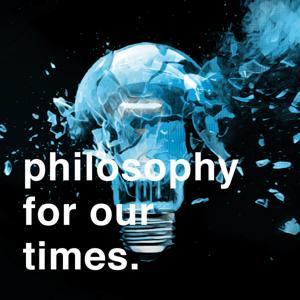Professor of Modern History and fellow of University College at the University of Oxford
Producer: Simon Tillotson
Reading list:
Angus Burgin, The Great Persuasion: Reinventing Free Markets Since the Depression (Harvard University Press, 2012)
Bruce Caldwell, Hayek’s Challenge: An Intellectual Biography of F.A. Hayek (University of Chicago Press, 2004)
Bruce Caldwell, ‘The Road to Serfdom After 75 Years’ (Journal of Economic Literature 58, 2020)
Bruce Caldwell and Hansjoerg Klausinger, Hayek: A Life 1899-1950 (University of Chicago Press, 2022)
M. Desai, Marx’s Revenge: The Resurgence of Capitalism and the Death of Statist Socialism (Verso, 2002)
Edward Feser (ed.), The Cambridge Companion to Hayek (Cambridge University Press, 2006)
Andrew Gamble, Hayek: The Iron Cage of Liberty (Polity, 1996)
Friedrich Hayek, Collectivist Economic Planning (first published 1935; Ludwig von Mises Institute, 2015), especially ‘The Nature and History of the Problem’ and ‘The Present State of the Debate’ by Friedrich Hayek
Friedrich Hayek (ed. Bruce Caldwell), The Road to Serfdom: Text and Documents: The Definitive Edition (first published 1944; Routledge, 2008. Also vol. 2 of The Collected Works of F. A. Hayek, University of Chicago Press, 2007)
Friedrich Hayek, The Road to Serfdom: Condensed Version (Institute of Economic Affairs, 2005; The Reader’s Digest condensation of the book)
Friedrich Hayek, ‘The Use of Knowledge in Society’ (American Economic Review, vol. 35, 1945; vol. 15 of The Collected Works of F. A. Hayek, University of Chicago Press)
Friedrich Hayek, Individualism and Economic Order (first published 1948; University of Chicago Press, 1996), especially the essays ‘Economics and Knowledge’ (1937), ‘Individualism: True and False’ (1945), and ‘The Use of Knowledge in Society’ (1945)
Friedrich Hayek, The Constitution of Liberty (first published 1960; Routledge, 2006)
Friedrich Hayek, Law. Legislation and Liberty: A new statement of the liberal principles of justice and political economy (first published 1973 in 3 volumes; single vol. edn, Routledge, 2012)
Ben Jackson, ‘Freedom, the Common Good and the Rule of Law: Hayek and Lippmann on Economic Planning’ (Journal of the History of Ideas 73, 2012)
Robert Leeson (ed.), Hayek: A Collaborative Biography Part I (Palgrave, 2013), especially ‘The Genesis and Reception of The Road to Serfdom’ by Melissa Lane
In Our Time is a BBC Studios Audio Production




































